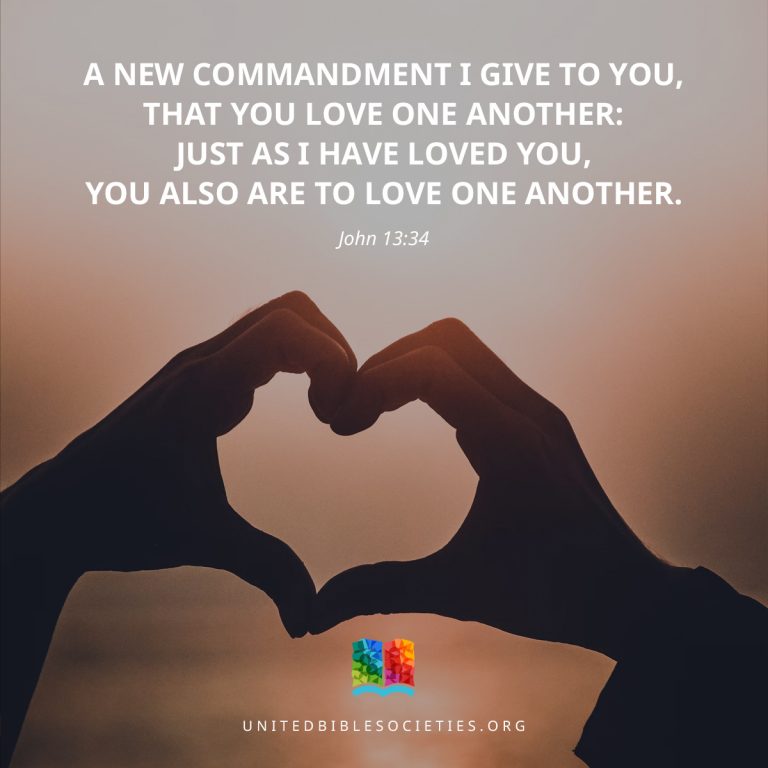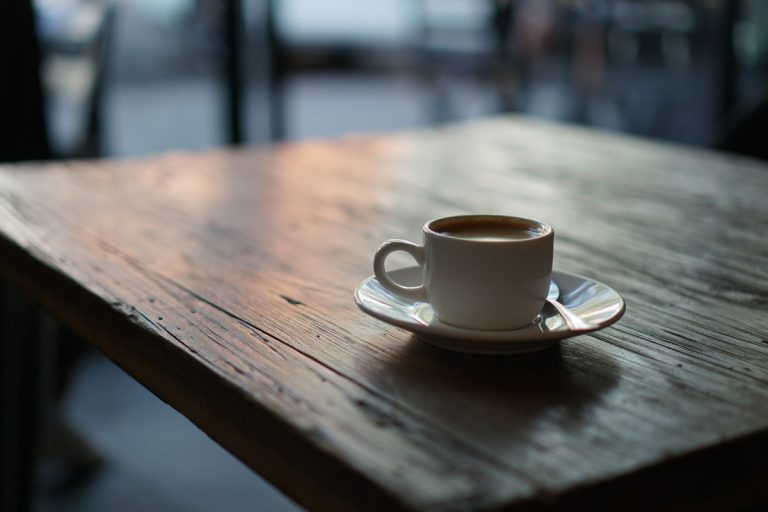The Example of Abraham
1 Well then, what can we say about our ancestor Abraham? 2 If he became acceptable to God because of what he did, then he would have something to brag about. But he would never be able to brag about it to God. 3 The Scriptures say, “God accepted Abraham because Abraham had faith in him.”
4 Money paid to workers isn't a gift. It is something they earn by working. 5 But you cannot make God accept you because of something you do. God accepts sinners only because they have faith in him. 6 In the Scriptures David talks about the blessings that come to people who are acceptable to God, even though they don't do anything to deserve these blessings. David says,
7-8 “What a blessing
when God forgives our sins
and our evil deeds.
What a blessing
when the Lord erases our sins
from his book.”
9 Are these blessings meant for circumcised people or for those who are not circumcised? Well, the Scriptures say that God accepted Abraham because Abraham had faith in him. 10 But when did this happen? Was it before or after Abraham was circumcised? Of course, it was before.
11 Abraham let himself be circumcised to show he had been accepted because of his faith even before he was circumcised. This makes Abraham the father of all who are acceptable to God because of their faith, even though they are not circumcised. 12 This also makes Abraham the father of everyone who is circumcised and has faith in God, as Abraham did before he was circumcised.
The Promise Is for All Who Have Faith
13 God promised Abraham and his descendants that he would give them the world. This promise wasn't made because Abraham had obeyed a law, but because his faith in God made him acceptable. 14 If Abraham and his descendants were given this promise because they had obeyed a law, then faith would mean nothing, and the promise would be worthless.
15 God becomes angry when his Law is broken. But where there isn't a law, it cannot be broken. 16 Everything depends on having faith in God, so that God's promise is assured by his gift of undeserved grace. This promise isn't only for Abraham's descendants who have the Law. It is for all who are Abraham's descendants because they have faith, just as he did. Abraham is the ancestor of us all. 17 The Scriptures say that Abraham would become the ancestor of many nations. This promise was made to Abraham because he had faith in God, who raises the dead to life and creates new things.
18 God promised Abraham a lot of descendants. And when it all seemed hopeless, Abraham still had faith in God and became the ancestor of many nations. 19 Abraham's faith never became weak, not even when he was nearly 100 years old. He knew he was almost dead and that his wife Sarah could not have children. 20 But Abraham never doubted or questioned God's promise. His faith made him strong, and he gave all the credit to God.
21 Abraham was certain that God could do what he had promised. 22 So God accepted him, 23 just as we read in the Scriptures. But these words were not written only for Abraham. 24 They were written for us, since we will also be accepted because of our faith in God, who raised our Lord Jesus to life. 25 God gave Jesus to die for our sins, and he raised him to life, so that we would be made acceptable to God.
Iburayima la lannoo taamanseeroo
1 Wo to, ǹ si muŋ ne fo m̀ mumu Iburayima la kuwo to, ntolu Yahuudoolu bota meŋ bala. 2 Niŋ Iburayima la kebaaroolu ye a tilindi nuŋ, wo to a ye feŋ soto le, a be kibiri la meŋ na, bari a te kibiri noo la Alla ñaatiliŋo la. 3 Alla la kumoo ye muŋ ne fo? A ko, “Iburayima laata Alla la le, aduŋ a la wo lannoo le naata a ke moo tilindiŋo ti Alla ñaa koto.”
4 Niŋ moo ye dookuwo ke, ì buka a la joo muta ko soorifeŋo, bari ì ka a muta le ko ì taroo. 5 Moo meŋ maŋ jiki a la kebaara betoolu la, bari a laata Alla la, meŋ ka kuu kuruŋ kelaa tilindi, Alla ye wo maarii la lannoo muta a ye tiliŋo le ti. 6 Hani Dawuda ye wo kuu kiliŋo le fo, kabiriŋ a ye moo la barakoo fo, Alla ye meŋ muta moo tilindiŋo ti, kebaara betoolu maŋ kafu daameŋ. A ko:
7 “Seewoo be moo le ye,
yamfa keta meŋ na junuboolu la,
meŋ na hakoo tuutuuta.
8 Seewoo be moo le ye,
Maariyo maŋ meŋ na kuu jawoo muta a fee.”
9 Fo ñiŋ barakoo laahidita le ko, a be sunnariŋolu doroŋ ne ye baŋ, waraŋ fo a be sunnabaloolu fanaa ye le? Ǹ tarata a fo la le ko, Iburayima la lannoo le naata a ke moo tilindiŋo ti Alla ñaatiliŋo la. 10 Ñiŋ keta waati jumaa le? Fo a keta Iburayima la sunnoo koolaa le ti baŋ, waraŋ janniŋ a be sunna la? A maŋ ke a la sunnoo koolaa ti, bari a keta le, janniŋ a be sunna la. 11 Iburayima naata sunnoo soto taamanseeroo niŋ suuteeraŋo ti, meŋ ye a la tiliŋo yitandi, a ye meŋ soto ka bo niŋ a la lannoo la, janniŋ a be sunna la. Wo kamma la, Iburayima keta lannamoolu bee le faamaa ti, Alla ye mennu muta moo tilindiŋo ti, hani ì maŋ sunna. 12 Wo ñaa kiliŋo la, Iburayima mu sunnariŋolu fanaa le faamaa ti, mennu ye wo lannoo muta, Iburayima ye meŋ muta nuŋ, janniŋ a be sunna la.
Iburayima ye laahidoo soto Alla bulu moolu bee ye, mennu laata
13 Laahidoo Alla ye meŋ dii Iburayima niŋ a koomalankoolu la nuŋ ko, duniyaa bee be ke la itolu le taa ti, Alla maŋ ñiŋ laahidoo dii Iburayima la a la Luwaa mutoo kaŋ, bari a ye a dii a la lannoo le kaŋ. 14 Niŋ a ye a tara, duniyaa be ke la Luwaa mutalaalu le taa ti, wo to lannoo maŋ nafaa soto, aduŋ Alla la laahidoo tiñaata le. 15 Kaatu Luwaa ka Alla la kamfaa le samba naŋ, bari luwaa maŋ tara daameŋ, luwaa tiñaa buka tara wo to.
16 Ka Alla la laahidoo soto, a be dendiŋ lannoo le la, fo a si tara looriŋ Alla la hiinoo kaŋ. Ñiŋ soorifeŋo be ke la Iburayima koomalankoolu bee le taa ti, a maŋ ke moolu dammaa ti, mennu ye Luwaa soto, bari a be moolu fanaa ye le, mennu ye Iburayima la lannoo soto. Ate le mu ntolu bee faamaa ti, 17 ko a be safeeriŋ ñaameŋ ko:
“Ŋa i ke nasiyoŋ jamaa le faamaa ti.”
Ñiŋ mu Alla le la kumoo ti, Iburayima laata meŋ na. Ate ka baluwo dii furewolu la le, aduŋ niŋ a ye yaamaroo dii, feŋolu mennu maŋ tara keriŋ nuŋ, ì ka ke le. 18 Iburayima tarata jikiriŋ Alla le la hani waatoo meŋ na, a ye jikilateyi kuwolu doroŋ je. A laata ko, a be ke la nasiyoŋ jamaa le faamaa ti ko Alla la kumoo ye a fo ñaameŋ ko, “I koomoo be siyaa la wo le ñaama.”
19 A maŋ jikilateyi a la lannoo kono, hani a ye a je ñaa-wo-ñaa ko, a balajaatoo korita le, tumoo meŋ na, a siyo be sanji keme ñoŋ. A maŋ jikilateyi, hani a ye a la musoo Saara la jiidibaliyaa niŋ keebaayaa loŋ ñaa-wo-ñaa. 20 A maŋ soŋ, sikoo ye duŋ a sondomoo kono Alla la laahidoo to, bari a ka tu bambandiŋ doroŋ a la lannoo kono, niŋ a ka tenturoo niŋ jayiroo dii Alla la. 21 A tuta dankeneyaariŋ ne ko, Alla be a la laahidoo timmandi noo la le. 22 A la ñiŋ lannoo kamma la, a keta moo tilindiŋo ti Alla ñaatiliŋo la. 23 Ñiŋ kumoo maŋ safee ate dammaa la kuwo to, 24 bari ntolu fanaa. Alla be ntolu fanaa ke la moo tilindiŋolu le ti, kaatu ǹ laata a la le, meŋ ye m̀ Maarii Yeesu wulindi ka bo saayaa kono. 25 A faata le fo ǹ na junuboolu si yamfa, aduŋ a wulindita le ka bo saayaa kono fo ǹ si tiliŋ Alla ñaatiliŋo la.



